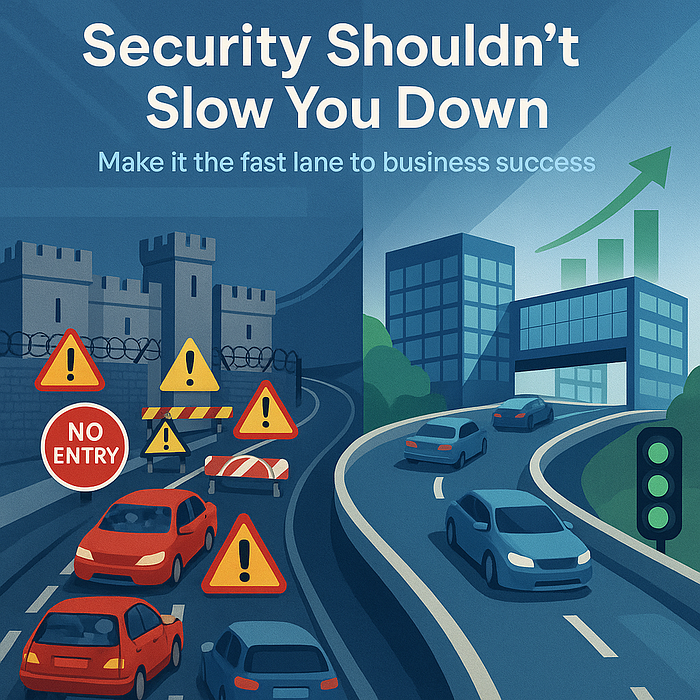Beware of ‘Quishing’: The Latest QR Code Scam Taking Over the UK and Europe

Over the past few years, QR codes have become a common sight in our daily lives. Whether you’re scanning a code to check a restaurant menu, make a payment, or access information, these little black-and-white squares seem to be everywhere. But, like any other technology, they can be used for good and evil. In recent months, a new type of scam has emerged in the UK and across Europe, known as ‘quishing.’
If you’ve never heard of quishing, you’re not alone. It’s a term that combines "QR" (Quick Response) with "phishing" – a type of scam where criminals trick you into sharing your personal information. So, what exactly is quishing, and how can you protect yourself from falling victim to this latest cyber threat?
What Is Quishing?
Quishing involves the use of QR codes by scammers to deceive people into visiting malicious websites or downloading harmful software. When you scan a QR code, your phone reads the embedded data, which is usually a URL (a web link). While most QR codes are perfectly safe, a quishing scam involves the creation of fake QR codes that direct you to dangerous sites or prompt you to download malware.
These scams are particularly concerning because QR codes can easily be placed anywhere. You might find them on a poster, flyer, business card, email, or social media post. They can be printed on anything and put anywhere – making it difficult to spot a fake at first glance.
How Does Quishing Work?
The process is simple but sneaky. Let’s say you’re walking down the street and see a flyer advertising a new restaurant with a QR code to access their menu. You scan the code, expecting to see a list of delicious dishes, but instead, you’re taken to a website that looks genuine but isn’t.
If it pretends to be a payment page, this fake website might ask for your personal details, like your name, email address, and even your credit card number. In some cases, just visiting the website could automatically download malware onto your phone, which could then be used to steal your personal information or track your online activity.
Recent Examples of Quishing Scams in the UK and Europe
Quishing scams have been popping up more frequently in recent months, targeting unsuspecting people across the UK and Europe. Here are a few real-world examples:
- Parking Ticket Scams in London: In early 2024, a spate of quishing incidents was reported in London, where fake parking tickets with QR codes were placed on car windshields. The QR codes directed victims to a website that asked them to pay a fine. Many people, believing they had genuinely parked incorrectly, shared their credit card details with the scammers.
- Fake Delivery Notifications in France: During the Christmas shopping season in late 2023, thousands of people in France received emails and text messages claiming to be from popular courier companies. These messages included a QR code, supposedly to reschedule a missed delivery. In reality, the QR code directed people to a fake website that collected their personal details and payment information.
- Ticket Scams at European Events: Scammers have been targeting people attending concerts and sports events in several European countries, including Germany and Spain. They have been putting up fake posters and distributing leaflets with QR codes that claim to offer last-minute ticket sales or discounts. People who scanned these codes were redirected to fraudulent websites that asked for payment information, resulting in stolen money and personal data.
Why Are Quishing Scams Effective?
Quishing scams are particularly effective for several reasons:
- Trust in Technology: Most of us have grown accustomed to scanning QR codes without a second thought. We trust that they will lead us to a legitimate website or service.
- Convenience: Scammers exploit the convenience factor of QR codes. They know that people are less likely to question a code than a link in an email.
- Hard to Detect: It’s nearly impossible to tell if a QR code is malicious just by looking at it. This makes quishing a stealthy way to trick people.
How to Protect Yourself from Quishing
Here are some simple tips to help you avoid falling victim to a quishing scam:
- Be Cautious with Unfamiliar QR Codes: If you encounter a QR code in an unexpected place, think twice before scanning it. Always ask yourself if the source is trustworthy. If it’s on a poster or flyer, does it seem genuine? Is it from a reputable organisation?
- Check the URL Carefully: After scanning a QR code, look closely at the URL on your screen. Does it look legitimate? If you’re unsure, don’t proceed. Remember, scammers often create fake websites that look almost identical to the real thing, so be vigilant.
- Use a QR Scanner with Security Features: Some QR code scanner apps offer built-in security features that warn you if a link seems suspicious. Consider using one of these apps instead of your phone’s default camera scanner.
- Avoid Entering Personal Information: Never provide personal or financial information on a website you’ve been directed to via a QR code unless you are sure it’s genuine.
- Keep Your Devices Updated: Ensure your phone’s operating system and apps are up-to-date, and use antivirus software to protect against malware.
- Look for Clues: Is the QR code poorly printed or placed in an unusual location? Is the text surrounding it filled with spelling mistakes? These could be signs that the code is not legitimate.
While quishing might sound like another buzzword, it’s a growing threat. Scammers are always looking for new ways to exploit technology, and QR codes are just the latest tool in their arsenal. You can protect yourself from becoming a victim by staying informed and taking a few simple precautions.
Remember, if something feels off, trust your instincts. Not every QR code is out to get you, but being cautious is the best way to stay safe in an increasingly digital world. Share this information with your friends and family – especially those who might not be as tech-savvy – and help spread the word about quishing scams. Awareness is the first step in protecting yourself and others from this digital danger.
Stay safe, and happy scanning!
Reach out if you have a comment or want me to write about any topic.




